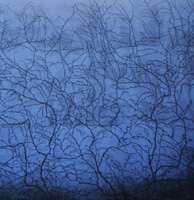 Sin isn’t the human condition; it’s the explanation for the human condition. Without knowledge of sin, life makes no sense at all.
Sin isn’t the human condition; it’s the explanation for the human condition. Without knowledge of sin, life makes no sense at all.
I first got a glimmer of this when I was a sophomore in high school. The occasion was the first live play I had ever seen: a production of Macbeth in a high school gym in Bergenfield, New Jersey. The humdrum setting took nothing away from the theatrical power of Shakespeare’s tale of betrayal, witchcraft, insanity, and murder. I was completely caught up in it. I was right there as the disasters of Act V unfolded: the unholy vision, Lady Macbeth’s madness, her suicide, and Macbeth’s soliloquy of bitter despair as bloody doom descends on him:
Life’s but a walking shadow, a poor player
That struts and frets his hour upon the stage
And then is heard no more. It is a tale
Told by an idiot, full of sound and fury,
Signifying nothing.
Mind you, nobody talked like this in the snug pre-Vatican II, East Coast, Irish-Catholic cocoon that I grew up in. Nobody thought like this either, as far as I knew. But that night I realized that some people did. Art worked its magic and caused me to understand a couple of things. I understood how Macbeth would think that life was meaningless, and through him I glimpsed the landscape of a world without God and without a purpose, without an explanation of why things are the way they are. But I also understood something Macbeth didn’t: his wicked deeds had caused this bloody catastrophe. Things looked bad because he had made them that way.
Time passed, my education continued, and I learned that Macbeth’s attitude was pretty much the prevailing view of 20th-century intellectuals. I read Albert Camus (“the one truly serious philosophical problem is suicide”) and James Joyce (“history is a nightmare from which I am trying to awake”). I read Jean-Paul Sartre (“We want to anesthetize ourselves; we do not want to realize that underneath all of this there is nothingness. When we realize that, the only proper attitude is despair and tremendous anxiety.”).
This picture changes considerably when we learn that the world is a sorry mess because it’s alienated from God. We’ve lost our way. We’re wandering in the wilderness, trying to find our way home. Amazingly, sin becomes a source of hope. It explains why things fall apart, why we do things we hate, why we struggle to do the right thing, why we suffer at the hands of people doing the wrong things. Sin shows us that history is not simply a nightmare and that we don’t need to stare into a void with tremendous anxiety. Things don’t have to be this way. We can hope for a better world because this world isn’t the world that God intended. Sin shows us that life as we know it isn’t a meaningless tale told by an idiot. Rather, our lives are broken, and they need to be fixed.
I wasn’t taught about the hopeful side of sin during my years of religious education. Many of the nuns and brothers who taught me in school had a bleak view of the human condition. They tended toward the opinion of St. Augustine, who thought that humanity was a massa damnata—a huge mass of doomed souls, rebellious and ignorant, headed for hell. In the Augustinian view, God bestows the graces of salvation sparingly. Ignatius saw it differently. He understood how pervasive sin is, but he also saw how freely God bestows his grace. In the Exercises, Ignatius describes God bathing us with blessings, like the sun shining on the earth, like a fountain flowing with an endless stream of water. All is grace—even sin is grace.
Adapted from God Finds Us: An Experience of the the Spiritual Exercises of St. Ignatius Loyola.

On Thanksgiving Day 2017, I read your post. To feel it’s contents-that Life is meaningful because God loves us and all is Grace is grace enough…for you to have shared the feelings of many to write about Sin and Grace, the IgnatIan Way, is extraordinary Grace. Thank God for you Blessings.
Far from strutting and fretting my hour upon the stage, the exercises taught me the graces that accompany the moment of loss. I hear, I smell my saviour is near and he will carry me on his shoulders, back to the patient and rejoicing flock. Like some easter sufi I long to be lost so that the Lord will place me on his shoulders again.
The world is a mess because WE are mean, selfish, judgemental, impatient, ad infinitum a nauseum. Imagine what the world would be like if WE practiced kindness,generosity,presupposition, and patience.
That’s correct- sin is identified by the person’s condition or situations- that makes the sin to a certain extent I should say if one becomes engrossed or focused to it is another criteria other than using one’s brain to a worthwhile means to combat condition and or situation.
cam
We are so blessed when we experience the grace of God. Thank you for this post.
Amen! Words fail sometimes to sometimes express God’s grace….Ignatius would be pleased that we offer our gratitude to the author.
Thank you!